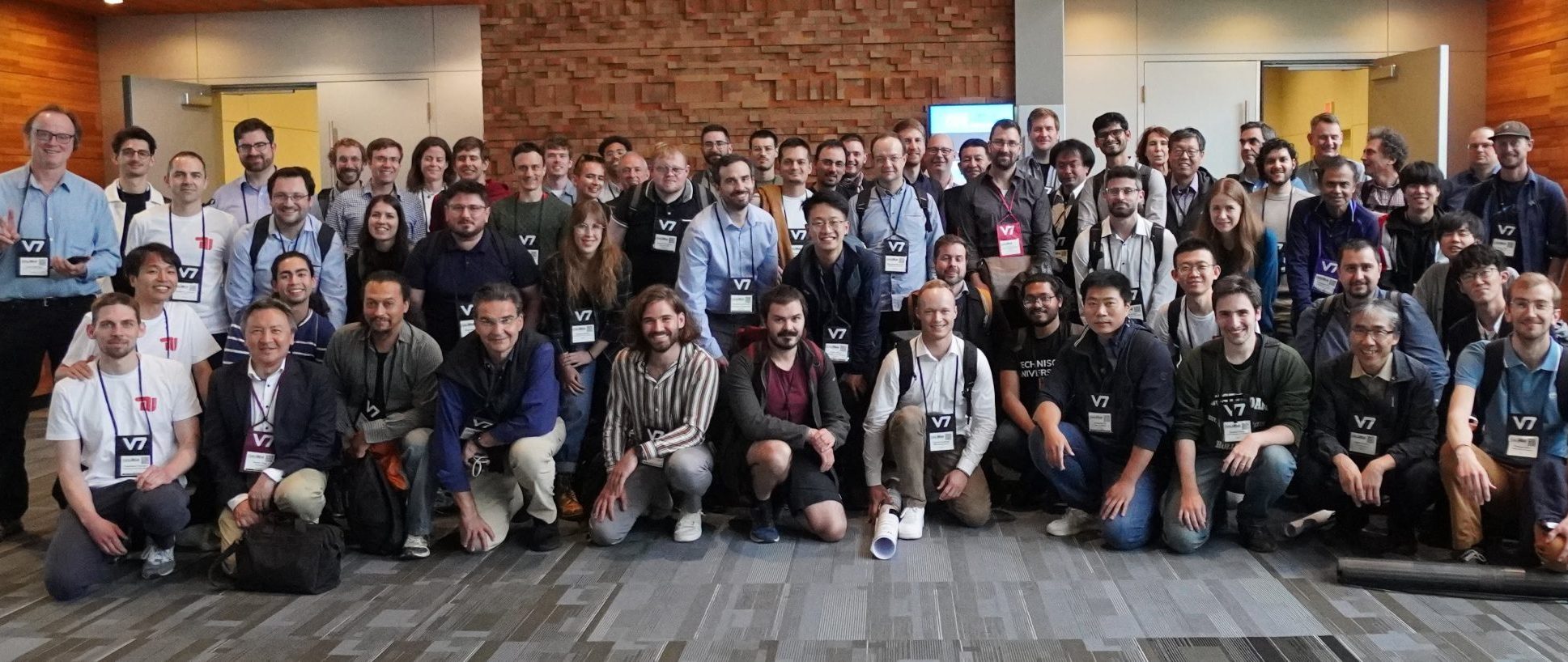SCIoI’s Guillermo Gallego to co-organize 5th International Workshop on Event-based Vision at CVPR 2025 in Nashville
On 12 June, 2025, Science of Intelligence PI Guillermo Gallego will once again co-organize the 5th International Workshop on Event-based Vision, to be held in conjunction with the IEEE/CVF Conference on Computer Vision and Pattern Recognition (CVPR 2025) in Nashville, Tennessee.
The workshop serves as a dedicated platform for the growing community working on event-based and neuromorphic vision, an area of research that continues to expand rapidly at the intersection of sensing hardware, computer vision, and intelligent systems. As in previous years, the event features an open call for papers, demonstrations, and poster presentations, as well as several international competitions aimed at benchmarking progress and fostering collaboration.
Scientific Focus
Event-based cameras are bio-inspired sensors that operate asynchronously, detecting changes in the scene with microsecond temporal resolution, low latency, and high dynamic range, all while maintaining low power consumption. These characteristics enable a range of applications that are challenging or unfeasible with conventional frame-based cameras—including visual tracking in low-light conditions, high-speed navigation in robotics, and real-time sensorimotor integration.
The Event-based Vision Workshop at CVPR is the premier venue for discussing exciting new ideas about neuromorphic cameras and their processing methods. It covers the sensing hardware, as well as the processing, data, and learning methods needed to take advantage of event-based cameras.
The workshop aims to highlight an emerging field with the potential to overcome many of the limitations of frame-based systems (speed, power consumption, robustness to HDR illumination, etc.). This forum fosters community building around these novel cameras, capitalizing on a growing interest and increasing contributions at the main conference.
Furthermore, the workshop seeks to connect with a broader audience by highlighting interdisciplinary links between computer vision, robotics, artificial intelligence, computational neuroscience, and psychology, as event cameras facilitate research into replicating the efficiency and robustness of the human visual system.
New in 2025: Community Challenges
This edition of the workshop features four open competitions designed to accelerate progress in key application areas of event-based vision:
1. Eye-Tracking Challenge
Focusing on the development of high-speed, low-latency eye tracking methods for XR and cognitive applications using the 3ET+ dataset. The winning team will be awarded a Meta Quest 3 (sponsored by DVsense).
2. Space-Time Instance Segmentation (SIS) Challenge
Participants are tasked with tracking and segmenting multiple mouse instances from event-based input (MouseSIS dataset), with separate tracks for events-only and events + frames.
3. Event-Based Image Deblurring Challenge
This challenge aims to improve image deblurring using event-based inputs in conjunction with frames (HighREV dataset). Solutions will be evaluated based on reconstruction quality and temporal precision.
4. Event-Based SLAM Challenge
Participants apply event-based SLAM algorithms using high-resolution data, with or without auxiliary IMU or monocular camera input. The challenge evaluates accuracy, robustness, and real-time performance.
Top-ranked participants are invited to submit their code, fact sheets, and papers for presentation and joint publication efforts. Selected results will be showcased as posters during the workshop.
About CVPR and SCIoI
CVPR is one of the premier international conferences in computer vision, attracting a diverse community of researchers and practitioners from academia, industry, and government. The event-based vision workshop has become an important fixture at the conference, offering a specialized forum to discuss advances in asynchronous sensing and neuromorphic computing.
At Science of Intelligence, Guillermo Gallego’s research focuses on computer vision, robotics, and intelligent sensor design. His group develops algorithms and perception systems inspired by human visual processing, enabling autonomous machines to interpret and respond to dynamic environments with speed and precision.





